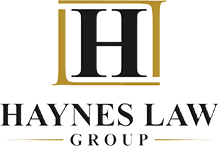I represent many clients who are fighting for their Florida Foreclosure Surplus Funds, only for those surplus funds to be held up in court by a third-party purchaser. A third-party purchaser is someone who has bought the property at a foreclosure auction. This means they are someone other than the original owner or the lender that foreclosed on the property. This third-party purchaser likely purchased the property at a subordinate lienholder’s foreclosure sale, and in doing so purchased it “subject to” the existing mortgage. Even though this third-party purchaser now owns the title (deed) to the property, there is still a mortgage lien that is encumbering the property held over from the prior owner (Buyer beware!). Mortgage liens follow the property because the property was used as collateral for the purchase of it. Even though there is a new owner, the property is still encumbered by that lien and the new owner must either pay it off, or it will be foreclosed on again.
But how does this affect your surplus funds? In reality, it doesn’t. At least it shouldn’t if you are being represented by a qualified Florida Foreclosure Surplus Attorney. No matter how much a third-party purchaser yells and screams at the courts, they are not entitled to any of the surplus funds. The courts are well settled on this point. For starters, if the person purchases the property at a Homeowner’s or Condo Owner’s Association sale, they may believe that they got a really great deal by buying a $250,000 property for $30,000 (sometimes much more). This happens because the foreclosure sale from the association is only looking to pay off any past due association fees along with attorney’s fees and legal costs. This may have amounted to only $15,000. The purchaser spent $30,000 and this leaves a surplus of $15,000.
Then, after they have purchased the property, they realize that there is a superior mortgage lien that is still on the property. The lender for this mortgage is now ready to foreclose on the property that was just purchased by this third-party. Here is where the “buyer beware” part comes in. The Court, the Clerk of Court, the auction site, and the plaintiff have no obligation to tell the third-party purchaser that the property may be encumbered by a mortgage lien. Often this comes as a complete surprise to the new owner. Once the new owner realizes they are about to lose their new property to another foreclosure sale, they start looking through the court records and see that there is now a surplus from the funds they paid for the property.
This leads the third-party purchaser to falsely believe they can recoup some of their money from their purchase by requesting the court to disburse the surplus funds to them (the leftover funds they paid to purchase the property). Although this seems like something that could be reasonable, only the owner of record at the time of the foreclosure can obtain those surplus funds, minus any owed to a subordinate lienholder. Based on Florida Statute 45.032(1)(a), the “’Owner of record’ means the person or persons who appear to be owners of the property that is the subject of the foreclosure proceeding on the date of the filing of the lis pendens.” The third-party purchaser could not be an owner of record at the time the lis pendens was filed as they purchased the property after the foreclosure case was finalized. In a Third District Court of Appeals case called, Pineda vs. Wells Fargo Bank from 2014, the court found specifically that “neither the statutes nor the case law governing distribution of surplus foreclosure sale proceeds provides a mechanism authorizing a third-party purchaser to obtain the surplus.”
This doesn’t seem to deter third-party purchasers from trying over and over again to get the court to distribute this money to back to them. I have handled many cases where a third-party purchaser was attempting to obtain these surplus funds and it always ends with the same result. Once presented with the case law and statutes, the court always sees that the third-party purchaser has no legal claim to the surplus funds.
If you believe you may have Florida Foreclosure Surplus Funds from a foreclosure sale and you know someone has purchased the property at a foreclosure auction is now attempting to retrieve your surplus funds, give me a call for a free consultation. I handle Foreclosure Surplus and Tax Deed Surplus Funds in every County in the State of Florida, and I don’t get paid unless you do.


